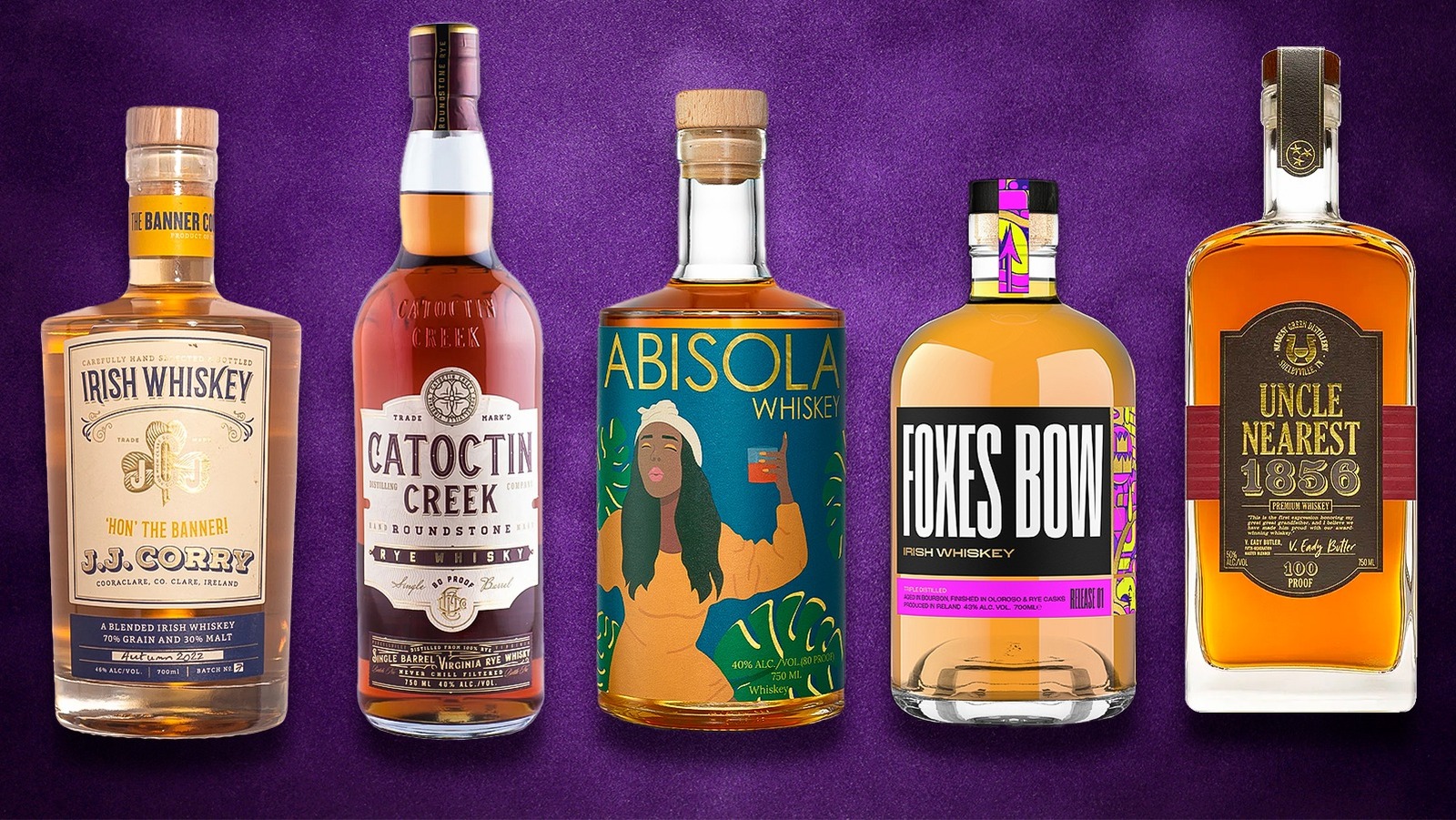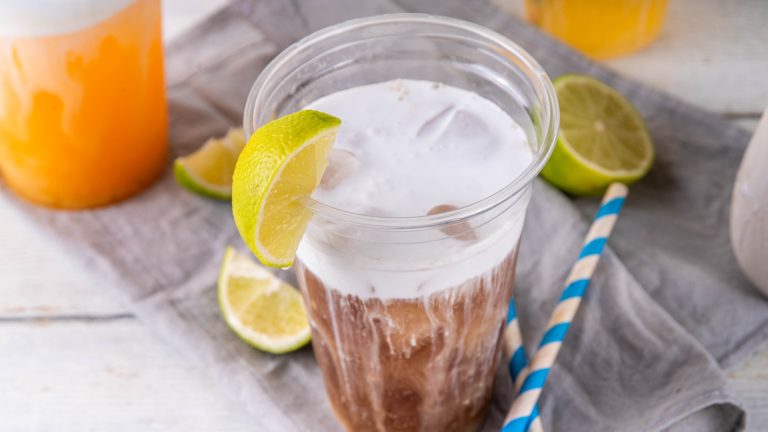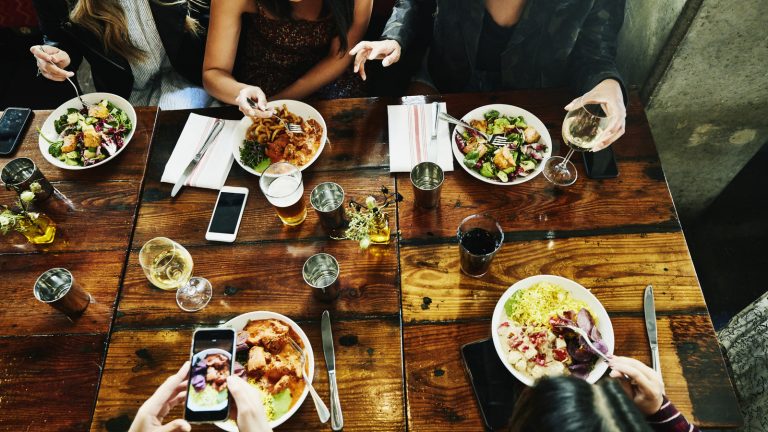There was a time when whiskey was the domain of men, and there are still so many whiskey and bourbon brands named for the men who pioneered them. Think of Jameson and Powers, Jack Daniel’s and Jim Beam, Elijah Craig, Evan Williams … you get the idea. Fortunately, this is the 21st century, and more than ever before, women aren’t just drinking whiskey and bourbon — they’re making it.
There are plenty of stories of women who have changed the American food industry for the better, and that’s exactly what’s happening in the whiskey and bourbon world, too. There are some seriously stellar products and some wild innovation coming out of some of today’s women-owned and -led breweries and distilleries, which means it’s an exciting time to be a fan of whiskey and bourbon.
With that in mind, let’s talk about some of the women-owned brands you’ll see popping up on shelves and menus everywhere. We’ll tell you a little bit about what they’ve been doing so far, the innovations they’re bringing to the table, where they might be going, and why you should definitely keep an eye on these labels.
Foxes Bow
Irish whiskey is often said to be the best for those just getting into the whiskey world, and that’s because it’s renowned for being smooth and easy to drink. That said, there are some giants out there in the Irish whiskey world that have been doing things the same way for generations, and that’s what Foxes Bow co-founders Alice Carroll and Tony Foote set out to change. They hit the ground running, too — founding Foxes Bow in late 2021, Carroll and Foote scored a Gold at the Irish Whiskey Awards in 2022.
Breaking the ages-old traditions around Irish whiskey was always the plan, and the real innovation with Foxes Bow comes with the finishing process. That’s done in rye casks, a move that was inspired by American rye whiskey. Add in sweetness imparted by aging in sherry casks and bourbon barrels, and the result is a truly unique Irish whiskey that’s the best of old-world style and modern innovation.
Foxes Bow is available across Ireland, proving that aside from a few stuffy naysayers, the country that holds whiskey practically sacred is ready for something new — and this is it. And don’t worry, Americans aren’t going to have to make a trip to the Emerald Isle to get it. Foxes Bow has launched into the U.S. market, and when you see it making its way into your favorite liquor store, trust us when we say you’ll need to pick this one up.
Catoctin Creek
One of the things we love seeing is new whiskey and bourbon companies paying homage to their roots, and that’s exactly what Catoctin Creek is doing — starting with the name. It’s a reference to the Native American word used to describe the distillery’s location in Virginia’s Loudoun Valley, celebrating the mountainous landscape that has historically been home to herds of deer. Becky and Scott Harris opened the distillery in 2009, and she isn’t just the co-founder, she’s also the Chief Distiller.
There are a few things that make Catoctin Creek’s whiskies stand out, including an extra-long cook time and a commitment to sourcing local grains. Innovation is the name of the game here, too, with a slew of award-winning whiskeys that include Rabble Rouser (a 100% rye whiskey that’s an impressive 6 years old) and a Hot Honey Rye (made with three kinds of honey). If it sounds like some funky things are going on here, they are — and interestingly, Harris is bringing a rather unique perspective to her distillery.
Catoctin Creek is a second career for both Harris and her husband: He’s an IT specialist turned distillery owner, she’s bringing her experience and training as a chemical engineer to the table. She’s also active in a nonprofit that matches students and distilleries for training and internship opportunities, with a focus on getting those opportunities to previously overlooked groups.
Abisola Whiskey
Abisola Whiskey is named for company founder Abisola Abidemi. She fell in love with whiskey in college, then later noticed that there was room in the market for her own whiskey. Not only did she target a certain flavor profile — a whiskey she describes as melding the flavors of vanilla, waffle cones, apricot, and malt, while still being incredibly smooth — but she also saw that there was room to prove that unaged whiskey has a place on the shelf, too.
Abidemi’s goal was to create a modern spirit that celebrated the idea that whiskey drinkers are becoming more diverse and adventurous, and that more women are drinking whiskey than ever before. She did it with a high-corn mash bill, which brings precisely the level of sweetness she was looking for. Because Abisola is a young whiskey, that sweetness is maximized — and as it’s also finished in a series of oak casks, that makes for a smooth, sweet, flavorful, well-balanced whiskey that anyone can raise a glass to.
Perhaps even more impressive than her dedication to proving that a young whiskey can be a quality whiskey is the fact that she got the entire thing up and running by doing everything herself. That includes everything from marketing to hosting tastings, and at the time of this writing, it can be found in bars in New York, California, Florida, and Washington, DC. We’re guessing that’s just the start.
Uncle Nearest
Nearest Green is the long-overlooked founder of Tennessee whiskey, and it’s his name that Uncle Nearest founder Fawn Weaver wanted to pay tribute to. Weaver’s story itself is pretty wild: She’s an entrepreneur and businesswoman who decided to get into whiskey after learning about Nearest Green, even though she had no previous distilling experience. That said, she’s still managed to make Uncle Nearest one of the fastest-growing whiskey companies in the U.S. after launching in 2016.
It’s not just the companies and the bottle that bear Green’s legacy, either. When Weaver heard about his story, she bought the farm where Green gave none other than Jack Daniel a crash course in making whiskey. Then, she kicked off a line of additive-free whiskies that include a straight rye and a 1884 Small Batch. She also invited Green’s great-great granddaughter, Victoria Eady Butler, to be Uncle Nearest’s Master Blender.
Weaver has continued to give back to the Green family in a big way: In addition to finally giving Green himself the respect he deserves, she’s also set up a non-profit that awards full scholarships to Green’s descendants, and she’s working to increase diversity within the whiskey industry by promoting the contributions and talents of women and people of color. And as for the whiskey, the wall of awards speaks for itself.
Backwards Distilling
If you’ve seen any of Backwards Distilling’s products, you’ll remember them. This company has a fun and funky, old-timey carnival vibe, with Strongman gin, an American whiskey, and a Milk Can moonshine taking center stage. There’s also a lot of experimental stuff going on — at the time of this writing, that includes a bourbon called Frankenbourbon and another called 11 Graves. Backwards Distilling bottles are currently stocked in 10 states.
Founded in 2013 with whiskey added to the lineup in 2018, Backwards is a family-owned craft distillery headed up by siblings Chad and Amber Pollock. Joined by their parents, the siblings started from scratch: No one knew anything about the day-to-day of running a distillery, but fueled by passion, they learned. And more than that, they picked different techniques from different styles to create something uniquely their own.
Opening the distillery meant a massive career change for Amber, who had designs on being a music teacher before one dinner table conversion sparked the idea of what would become Backwards Distilling. Today, the Pollocks aren’t just distilling some seriously funky stuff, but they’re also giving distillery tours of their Wyoming location, hosting tastings in their public space, and even giving classes on everything from making your own cocktails to the history of spirits.
J.J. Corry
J.J. Corry is a little different, and like all truly great endeavors, things kicked off with a flash of inspiration. In Louise McGuance’s case, that flash happened when she found an old bottle in an antique shop. The label said that it had been bonded and bottled by J.J. Corry of County Clare, and it kicked off a journey of discovery.
Whiskey bonding — the practice of taking casks to age and blend into something carefully curated — was just as devastated as the rest of the Irish whiskey industry in the tumultuous 20th century. For years, it was common practice: Distilleries would sell barrels to pubs, where the whiskey would then be finished. With McGuane’s opening of her rackhouse to age and finish bottles in the same way, this 21st-century incarnation of J.J. Corry revived an entire section of the Irish whiskey industry.
In an interview with Business Plus, she explained: “Our job is to shepherd the stock that we purchase along the way and make it really unique and interesting through a series of interjections throughout the maturation process and the blending process.” That led to a line of products that includes whiskey aged in sherry and bourbon casks, in craft whiskey casks, and one that’s inspired by tequila and mezcal. We can’t wait to see what’s next.
Catskill Provisions Distillery/Pollinator Spirits
It’s a sad fact that mead has fallen from the wild popularity that it once enjoyed, but it is making a comeback. Craft mead-makers aren’t the only ones raising bees and using real honey in a line of spirits — Claire Marin is doing it, too. She’s the head of Catskill Provisions and Pollinator Spirits, and in addition to producing honey and maple syrup, she’s also making whiskey and bourbon from the honey her bees produce.
The whiskey includes a spicy, honey-filled rye whiskey, and there’s an extra-spicy and smoky Bonfire Rye, too. The Pollinator bourbon is finished only after it’s spent some time in maple syrup barrels, so if you’re the type that opts for berry and buttermilk pancakes for dinner, we’d venture ahead with the opinion that this maple-heavy bourbon might be the perfect after-dinner drink. Marin’s spirits have already brought in a slew of awards — including from the San Francisco World Spirits Competition — and we can’t wait to see more.
For Marin, Pollinator Spirits and Catskill Provisions meant a switch from publishing to distilling, and in a way, it wasn’t that far of a leap. She was beekeeping already, and has been candid about the difficulty of getting her production off the ground as a woman working in a male-dominated industry. It might be a long and difficult road, but we love the idea of supporting businesses that support the bees!
Brenne
For anyone who’s having a bit of a crisis and wondering if they can reboot their life and career to embrace a completely new industry, take a page out of the book that Allison Parc is writing. She went from being a professional ballet dancer to founding Brenne, a wildly award-winning whisky company. Her business is built on the idea that — just like the principles of terroir are applied to wines to shape the essence of the product — the same theories apply to whisky.
When it came time to start researching her vision, Parc headed to a region perhaps often overlooked in whisky and bourbon: France. There, she carefully shaped everything from sourcing the water for the whisky to choosing cognac and French Limousin oak barrels for aging. Brenne’s distillery is in Cognac, France, and it’s working.
Brenne currently has a pair of award-winning whiskies that are truly pioneering the idea of the French single malt. The Brenne Estate Cask is between six and eight years old, and boasts a warm, spicy creaminess that perhaps makes it seem much more mature than it is. There’s also the Brenne Ten, which is (as the name suggests) more than 10 years old, just as award-winning, and boasts a peppery, chocolatey depth that makes this one to keep an eye on.
SIA Scotch Whisky
Getting someone new into drinking Scotch whisky can be a little challenging, and no one knows that better than SIA Scotch Whisky founder Carin Luna-Ostaseski. She’s been incredibly upfront about the fact that when a friend invited her out for a drink to sample some Scotch, she wasn’t interested. But that friend changed her mind, inspiring a passion that made her found SIA as a Scotch whisky that will win over even the biggest skeptics, just as she was won over.
The result of her experiments and exploration into Scotch whisky is a blend of Scotland’s whiskies, mixed and aged in American oak bourbon barrels. SIA has won some big awards, too, lauded for a smooth, slightly smoky finish with notes of citrus, honey, and sweetness. What you won’t find is a strong peat scent and flavor, something which she found had turned a lot of people away from this particular spirit.
Luna-Ostaseski’s story is pretty incredible, from her story as the Miami-raised daughter of Cuban immigrants to a heck of a lot of rejections in her attempts to work with distilleries and create not only the blend that she wanted, but to make it affordable and accessible. Add in a Gaelic name (sia means “six”), a bottle design made after consulting more than 100 industry professionals, and the fact that some proceeds go toward helping minority entrepreneurs, and it’s a winning formula.
Boss Molly
There are three women behind Boss Molly Bourbon: Brandi Bowles, Kate Rosante, and Victoria Horn. The idea took root when the three were drinking bourbon, playing poker, and talking about how so much of the branding was geared toward men. Their solution? Come up with their own bourbon, blend, and branding, giving it a female-oriented image that would appeal to all bourbon lovers, regardless of gender.
The image they chose was Boss Molly: Distiller, card player, and defier of rules, it’s also slang for the head mule in the herd. The bourbon is finished with the help of the staves of brandy barrels, and has the boldness of a wheated bourbon with a balance of sweetness, oakiness, a bit of spice, and a bit of leathery vanilla. The women of Boss Molly have partnered with Old Glory Distilling to make sure everything that goes into the bottle is up to their standards, and it’s an interesting partnership.
Not everyone has the ability to open a distillery themselves, especially considering the time it takes from making that first decision, through the aging and finishing process, to turning a profit. Boss Molly is about having a vision, turning it into reality, and as they say: “Boots down. Bottoms up.”
Milam & Greene
In case you’re wondering just how serious the women behind Milam & Greene are, consider this: In 2025, the company’s Master Distiller Marlene Holmes became the only female distiller in the Whisky Magazine’s Hall of Fame. Holmes has decades of experience, going all the way back to working alongside Jim Beam distiller Booker Noe, pioneer of bourbon and the famous Kentucky Chew method of bourbon tasting.
Holmes isn’t the only woman behind Milam & Greene: The first part of that name is entrepreneur Marsha Milam, and the second is master blender Heather Greene. Greene has been opening doors for women in the Scotch and whiskey world for years, from being a Scotch taster and ambassador to getting in on the ground floor at the Flatiron Room. And it’s important to note that was after she was told that there were no whiskey companies that were going to hire women to do what she wanted to do.
Greene was hired by the Ben Milam Distillery along with Holmes, and here we are today with a Texas distillery that has a line of outstanding, award-winning bourbons and whiskies that are the sort of thing you’d want to bring to a party if you’re looking to impress. Pick up a bottle of the port cask-finished rye, or a bottled-in-bond bourbon, and you won’t be disappointed. Also? Keep an eye out for the limited edition bottles that the company often sells to benefit charities.
Freeland Spirits
Freeland Spirits is the brainchild of agriculture guru Jill Kuehler and Cory Carman, a beef farmer who had considered grain production. Carman brought the grain, Kuehler brought the distillery — and the you-can-do-it attitude of her grandmother, Meemaw Freeland — and they kicked off a company that prides itself on being almost entirely female-run. The distiller of Freeland is chemist-turned-spiritmaster Molly Troupe, and she has said that even though the industry remains a male-dominated field, they’ve found plenty of mentors and support from a community that loves what they’re doing.
And they’re doing a lot, including a cherry blossom liqueur, a meadow gin and a forest-inspired one, and of course, bourbon. That’s a gorgeous, mahogany-colored bourbon that’s finished in pinot noir barrels for a wonderfully deep flavor. The high-rye bourbon is balanced to be something that rye whiskey fans can appreciate, alongside those who prefer a sweet, smooth bourbon, and it all comes together to make Freeland something unique.
Here’s an interesting tidbit: In the company’s profile on Troupe, it’s noted that having a female distiller just makes sense, as women tend to have more taste buds, more scent receptors, and a deeper sensitivity to taste and smell. They’re absolutely right: Women are more well-equipped to experience not only tastes and smells, but how the two senses interact to form a more exacting, larger picture. Female distillers were, after all, the original distillers, and they’re taking that back.





